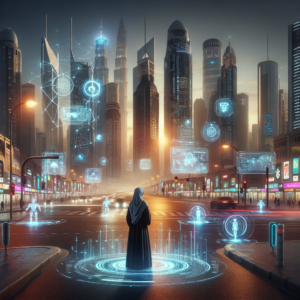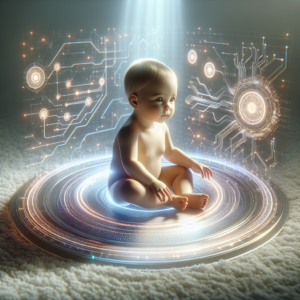How A.I. Is Changing the Way the World Builds Computers
In the world of technology, we are witnessing a remarkable transformation spurred by the rise of Artificial Intelligence (A.I.). As we delve into the intricate relationship between A.I. and computer construction, it becomes evident that we are on the precipice of a revolution unlike any other. This blog post will explore how A.I. is reshaping the way computers are built, from design to production, and the implications of these changes on the industry.
The Evolution of Computer Design
The design of computers has been an iterative process, evolving from large, room-sized machines to compact, powerful devices that fit in our pockets. Traditionally, computer design relied heavily on human expertise, with engineers manually calculating and optimizing each component. However, the integration of A.I. has ushered in a new era of efficiency and innovation.
Utilizing A.I. in Computer Architecture
A significant advancement in computer design is the use of A.I. algorithms to optimize architecture. Machine learning models are employed to predict performance, power consumption, and other critical factors, enabling engineers to design systems that are not only faster but also more energy-efficient. Instead of relying solely on trial and error, A.I. enables a more data-driven approach, allowing for a quicker and more precise design process.
Automated Design Tools
Another area where A.I. is making waves is in automated design tools. These tools are capable of generating complex layouts and configurations based on a set of predefined parameters. This automation reduces the workload for engineers and allows for rapid prototyping of new computer architectures. As a result, designs that once took months to finalize can now be produced in a matter of days.
Manufacturing Innovations
The manufacturing process of computers has also been transformed by A.I. As companies strive to keep pace with growing demand, they are turning to automation and machine learning to streamline production lines and enhance quality control.
Smart Manufacturing Systems
Smart manufacturing systems powered by A.I. can monitor production processes in real time, identifying bottlenecks and inefficiencies. By analyzing data from various stages of the production line, these systems can make adjustments on-the-fly, increasing productivity and reducing waste. This approach not only cuts costs but also ensures that the final product meets the highest quality standards.
Predictive Maintenance
Predictive maintenance is another area where A.I. is making a significant impact. By utilizing sensors and data analytics, manufacturers can predict when machines are likely to fail and perform maintenance before breakdowns occur. This proactive approach reduces downtime and extends the lifespan of equipment, ultimately leading to more reliable computer production.
Enhancing Customization
The demand for customized computing solutions has never been greater, and A.I. is at the forefront of meeting this demand. With advancements in A.I., companies can now offer tailored solutions that cater to the specific needs of individual users or industries.
A.I.-Driven Personalization
A.I. technologies enable manufacturers to analyze user data and preferences, allowing them to create highly personalized computing devices. Whether it’s for gaming, graphic design, or data analysis, A.I. can help in designing systems that cater to the unique requirements of each user. This level of customization not only enhances user experience but also opens up new avenues for product differentiation in a competitive market.
Rapid Iteration for Custom Solutions
Moreover, the ability to quickly iterate on designs using A.I. empowers manufacturers to experiment with various configurations, thereby allowing for rapid prototyping of custom solutions. This means that businesses can respond to customer demands more swiftly, ensuring that they stay relevant in an ever-changing landscape.
The Future of A.I. in Computing
As we look ahead, the potential for A.I. to transform the world of computer building seems boundless. With ongoing advancements in machine learning, data analytics, and automation, we can expect to see even more revolutionary changes in the near future.
Quantum Computing and A.I.
The intersection of A.I. and quantum computing stands out as an area ripe for exploration. A.I. can significantly enhance quantum algorithms, making them more efficient and accessible for practical applications. By leveraging the unique capabilities of quantum computing, A.I. could redefine computational limits, enabling breakthroughs in various fields, from cryptography to material science.
Ethical Considerations and Challenges
While the advantages of A.I. in computer construction are evident, there are also ethical considerations and challenges that must be addressed. As automation increases, there are concerns about job displacement and the need for a skilled workforce capable of managing and maintaining these advanced systems. It is essential for industry leaders to consider the social implications of these technologies and work towards solutions that benefit both the industry and society as a whole.
Conclusion
In conclusion, A.I. is fundamentally changing the way we build computers, driving innovations that enhance design, manufacturing, and customization. As we continue to harness the power of A.I., the future of computing looks brighter than ever. While challenges remain, the collaboration between human ingenuity and artificial intelligence promises a new era of technological advancement. Embracing these changes will be crucial for businesses seeking to thrive in an increasingly competitive landscape. The question now is not if A.I. will revolutionize computer building, but how quickly and effectively we can adapt to this new paradigm.



